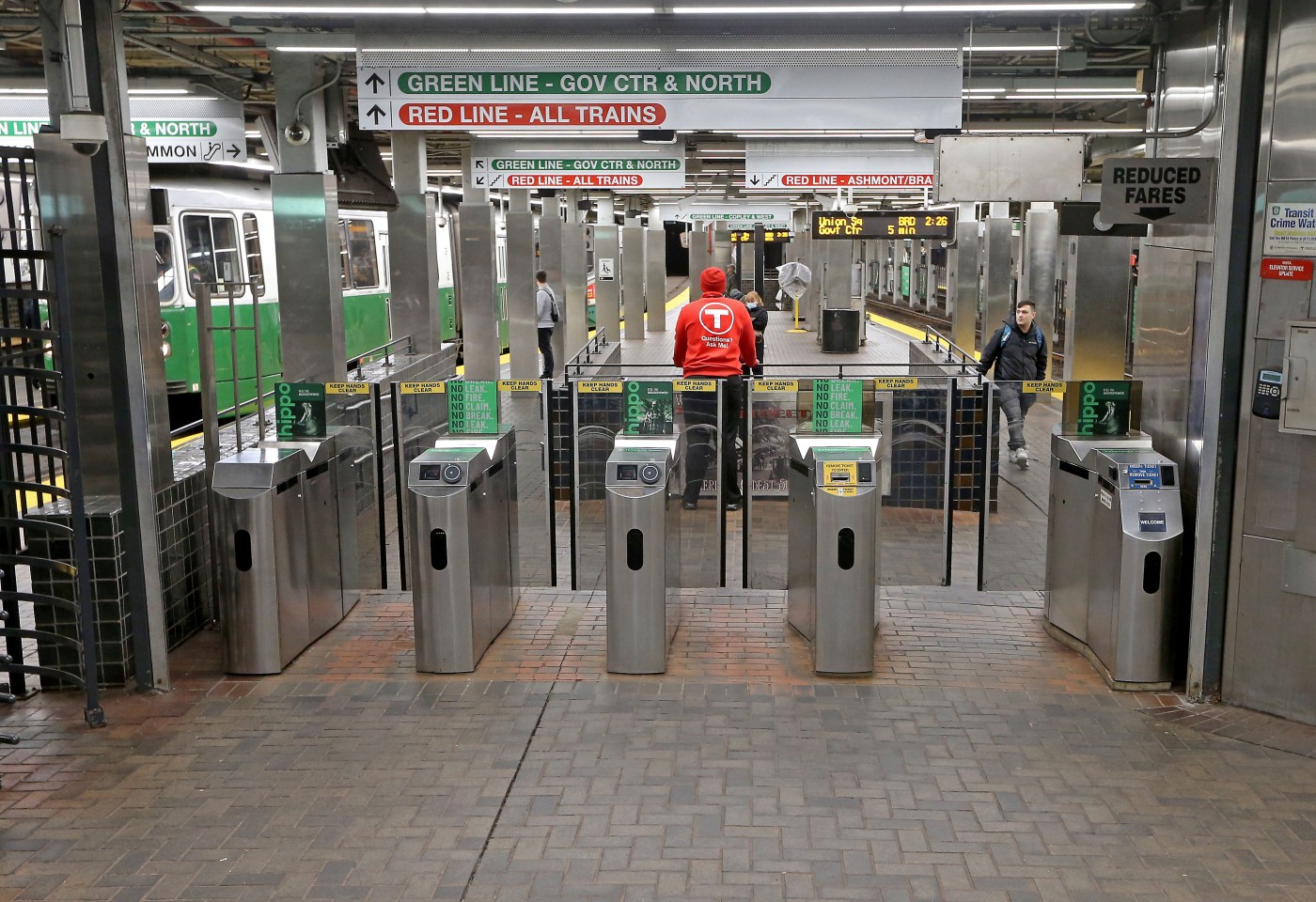
MBTA will, finally, launch automated payment this summer
The state’s beleaguered transportation system will finally enter the 21st century this summer when automated payments will apparently go live at the MBTA.
The T has been pursuing an automated payment system since at least 2016 and secured a contract for it in 2017, but seven years and millions of dollars later, it appears the T is planning to actually begin rolling out contactless payment on subways, bus lines, and the Green Line’s above-ground trolleys.
Of course, in true Massachusetts style, the “new” payment technology already widely available at many larger transit systems will arrive in the commonwealth both much later than expected and just a few hundred million dollars over its original budget, and of course there are some exceptions to the summer roll-out schedule.
“I am happy to be and excited to be in front of you today. Two reasons: one, I’m not asking you for money — because usually I’m in front of you asking for money; but I’m excited to actually be in front of you, more importantly, to tell you that we are going to bring a modernized fare collection system forward and it’s coming this summer,” MBTA Acting Chief Administrative Officer Jeff Cook told the MBTA Board of Directors on Thursday.
The new system will allow riders to pay for bus or train fare with their tap-enabled credit or debit cards and with their smartphone wallet apps. The contactless payment program is expected to expand to the commuter rail in spring of 2026.
Elizabeth Winters Ronaldson, the T’s acting deputy chief of fare revenue, told the board that plans are in place to accommodate the discounts given to senior and youth fare-eligible riders.
The Bay State’s new low-income rider program, which is set to go into effect this summer, will also work with the new payment system, she said
“We’re going to be leveraging technology that’s already largely in New York for applying reduced-fare credentials to contactless cards. Your Visa doesn’t know that you’re a senior or a member of Youth Pass, so we’ll be launching a way for customers to attribute their reduced-fare credential, including the income-eligible reduced fare, to their contactless payment so that they can benefit from the same reduced rate,” Winters Ronaldson said.
Traditional cash and non-tap card options will still be available after the contactless system goes live. The CharlieCard system is also due for an update by 2025, when a mobile app is set to launch.
Despite all of that good news, the MBTA Board of Directors was also asked to approve a change to the current automatic payment contract, which would push the full-go-live date from this May (as in essentially right now) to June of 2026.
The system was originally supposed to launch in 2020 at a cost of $723.3 million. The contract was amended to push that date back to this year, with a new expected cost of $935.4 million.
Cook told the board that the MBTA would not begin making payments to the vendor, Boston AFC 2.0 OpCo LLC, a subsidiary of California-based Cubic Transportation Systems, until it was satisfied that the system worked and had met all of the various requirements outlined in the 2018 contract.
“The MBTA does not make any payments until we feel the system is working, we accept it, and then we make a payment — and there are metrics that have to be met for that,” he said.
The board unanimously approved the updated contract implementation calendar.
The Mattapan Line, according to Winters Ronaldson, will not see contactless payment go live this summer due to a “power availability issue.” Work will commence this fall to address that concern, with the contactless payment scheduled to go live in the next several months. Winters Ronaldson said that other technology will temporarily be employed in the interim.
The MBTA is trying to catch up to modern-day technology to move things along faster all over. (Stuart Cahill/Boston Herald)


